Foreign-Born Talent Supercharges American Innovation
How immigrant inventors are key to US patenting

Foreign-born inventors are playing an increasingly vital role in US innovation: The share of patents granted to US companies having at least one foreign-born, US-based inventor has increased by 20% over the past decade.
Innovation in the US technology sector depends on the contribution of foreign-born inventors, with more than 40% of patents from US companies in the software and cloud services, e-commerce, and semiconductor industries having at least one foreign-born, US-based inventor.
Education is a key pipeline for this talent: More than half of foreign-born inventors in the US went to school in the US. Top universities with a focus on STEM, such as Stanford, MIT, and Berkeley, have the highest numbers of inventor alumni.
Immigrants have long played an important role in the US economy, bringing new ideas and unique perspectives. The contributions of immigrants include inventions, advances in research and development, and job creation, which have helped maintain the US’s position as a global leader in innovation and economic growth.
Revelio Labs’ new Employee-Linked Patents data matches inventors in patent data from the United States Patent and Trademark Office (USPTO) to their public professional profiles. These linkages allow us to gain fresh and valuable insight into the educational backgrounds and career paths of inventors. Previously, we used the dataset to examine the most innovative industries and companies in the US. This week, we leverage the data to explore how foreign-born inventors have contributed to US innovation.
Our sample in the analysis consists of inventors who, according to their professional online profiles, are currently located in the US. While we do not directly observe their countries of birth, we use the country of their earliest observed education as a proxy for foreign-born status. As this newsletter focuses on US innovation, rather than patents granted by the USPTO on the whole, we restrict the analysis to patents granted to US-headquartered companies.
We find that the contribution of foreign-born inventors has increased notably in the past 10 years: While 34% of patents granted to US-headquartered companies in 2014 had at least one foreign-born, US-based inventor, the share has grown to 41% in 2024.

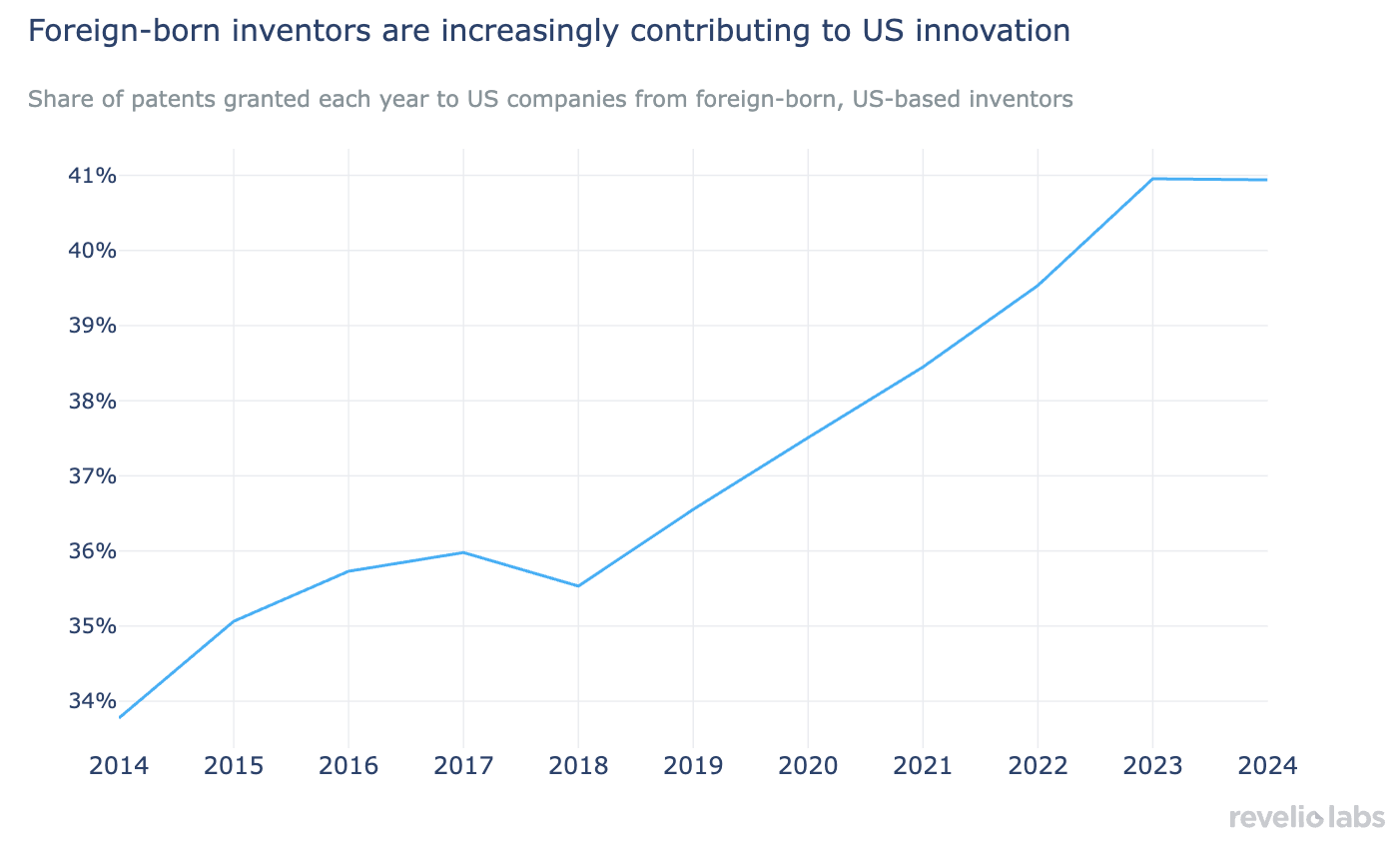
We also find that foreign-born inventors in the US are more productive than their native-born counterparts: Foreign-born inventors produce, on average, 1.6 more patents for US firms than those born in the US. This could be due to factors such as selection (for example, higher-ability foreign inventors may be more likely to remain in the US) as well as choice of field (for example, foreign inventors may choose to specialize in fields that generate more patents).

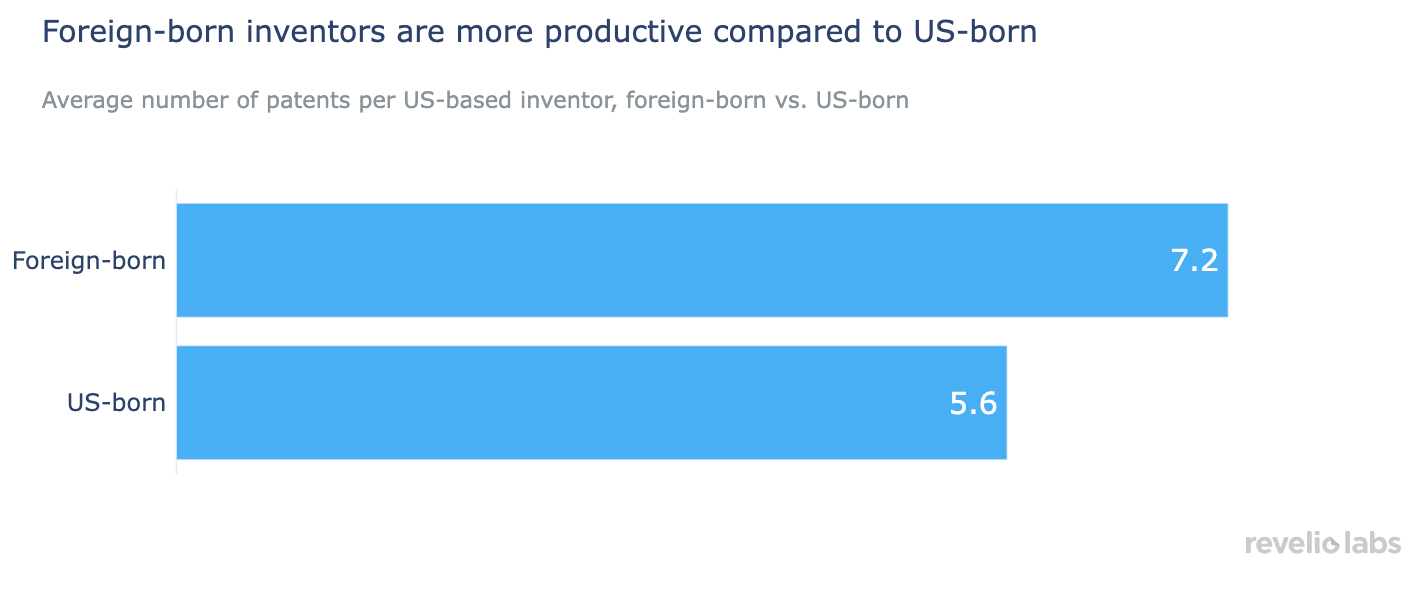
If the US disincentivizes the arrival of foreign-born workers, especially high-skilled foreign workers, this may have consequences on US innovation and the broader economy. Some sectors in particular depend more heavily on foreign talent and may face greater challenges than others if these individuals decide to live and work elsewhere.
Focusing on industries with high patenting activity, we find that the US tech sector relies the most on foreign-born inventors: More than 40% of patents granted to companies in industries such as software and cloud services, e-commerce, and semiconductor manufacturing have at least one foreign-born, US-based inventor. The US may stand to lose its competitive advantage in these critical sectors if it can no longer attract foreign-born inventors to work for American companies. Aerospace and defense, automotive manufacturing, and oil and gas, however, may be less affected, with fewer than 20% of patents by US companies in these industries having a foreign-born inventor.

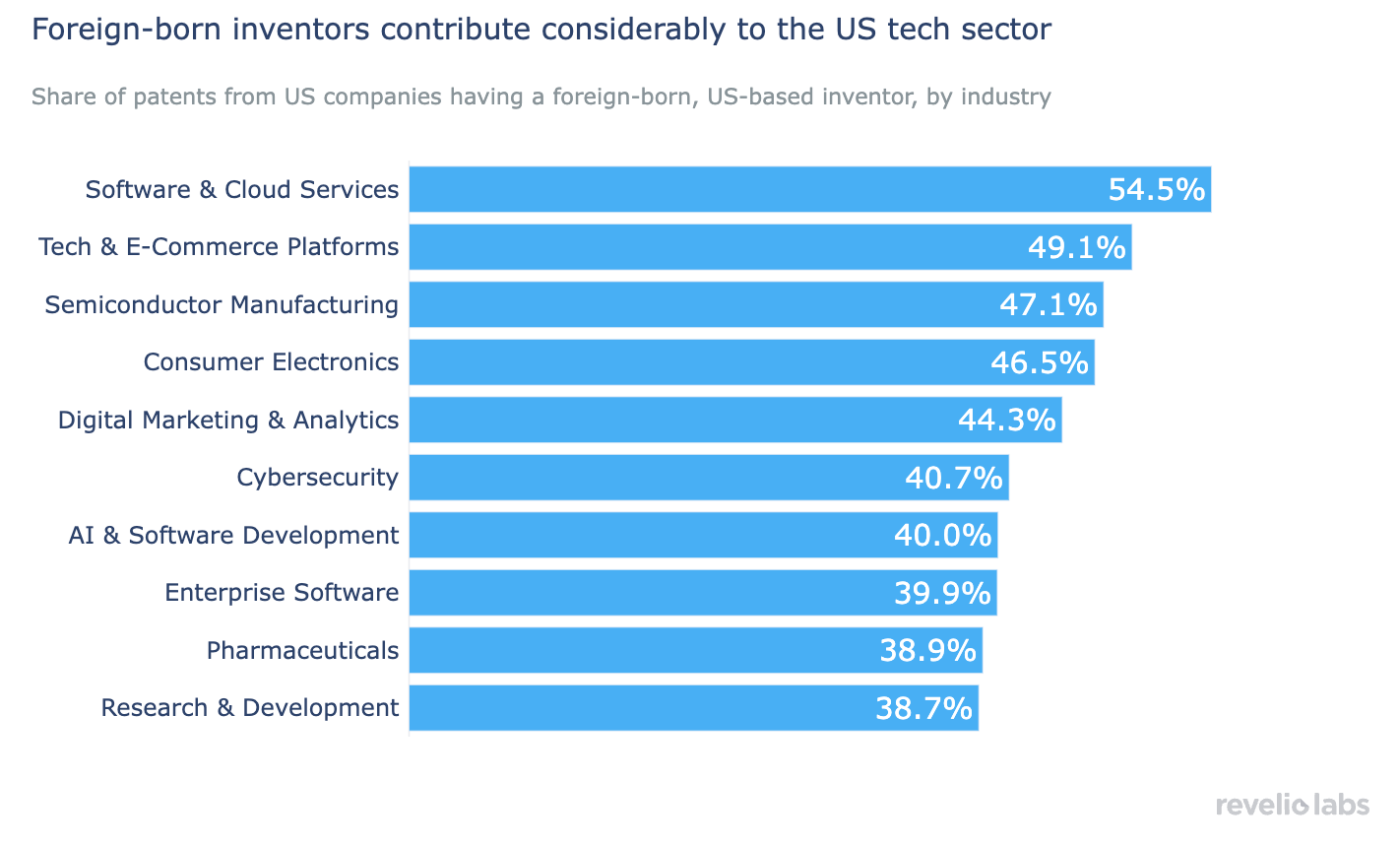
Education is an important part of the talent pipeline, with nearly 60% of foreign-born, US-based inventors having attended at least one American school. Thus, policies that restrict or disincentivize international students from pursuing degrees at US universities could harm US innovation down the road. They may even result in current international students moving to other countries after graduation. In the case of international PhD students, this could be a particularly costly loss for US schools, as they have likely invested resources and funding into these students’ educations.

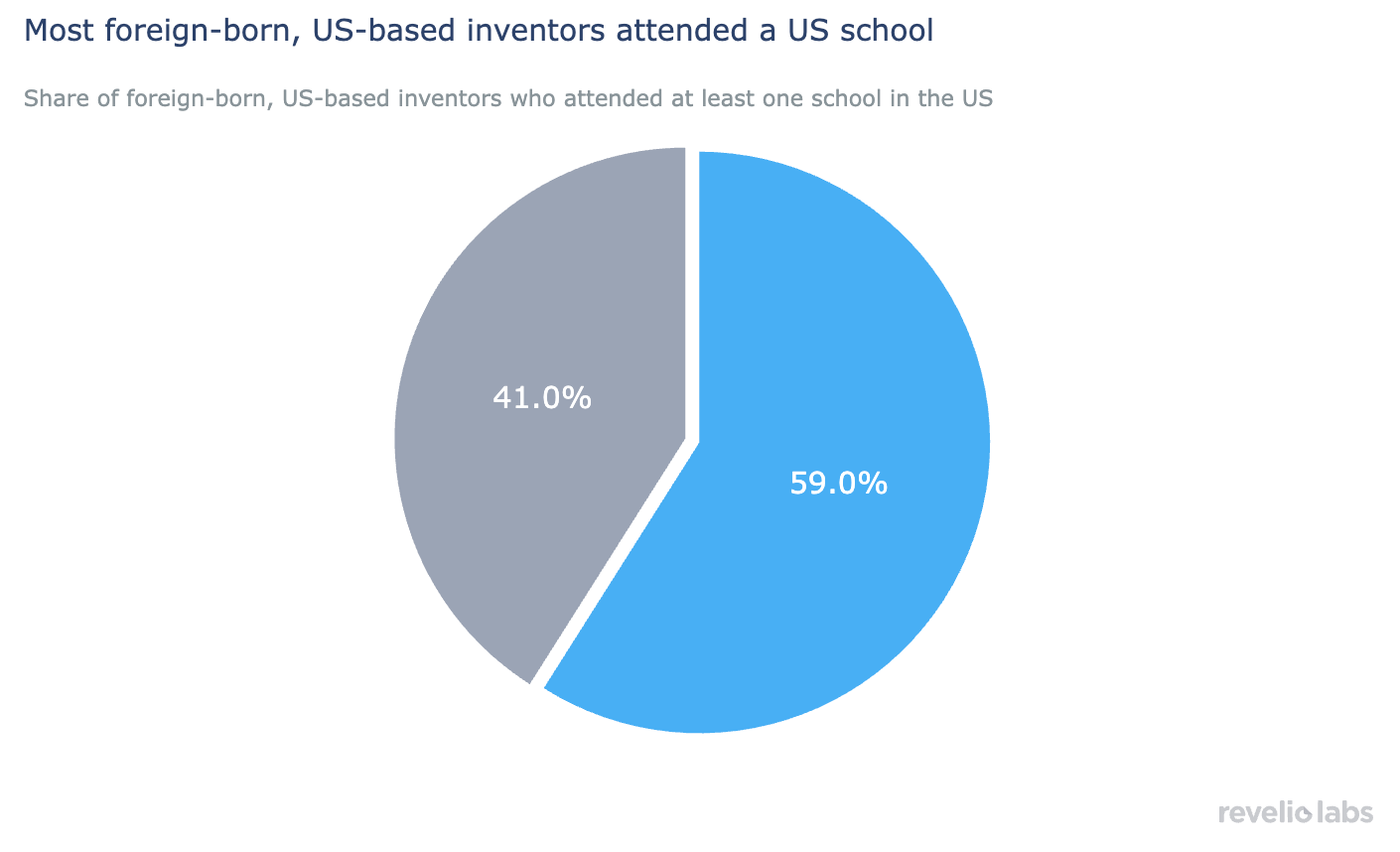
The most frequently attended American schools by these inventors include highly prestigious universities, especially those with strong STEM programs. For example, more than 5% of foreign-born, US-based inventors attended Stanford, while 3.6% and 3.5% attended MIT and UC Berkeley respectively. The attractiveness of American schools to international students could thus likely have significant implications for the future of American innovation.

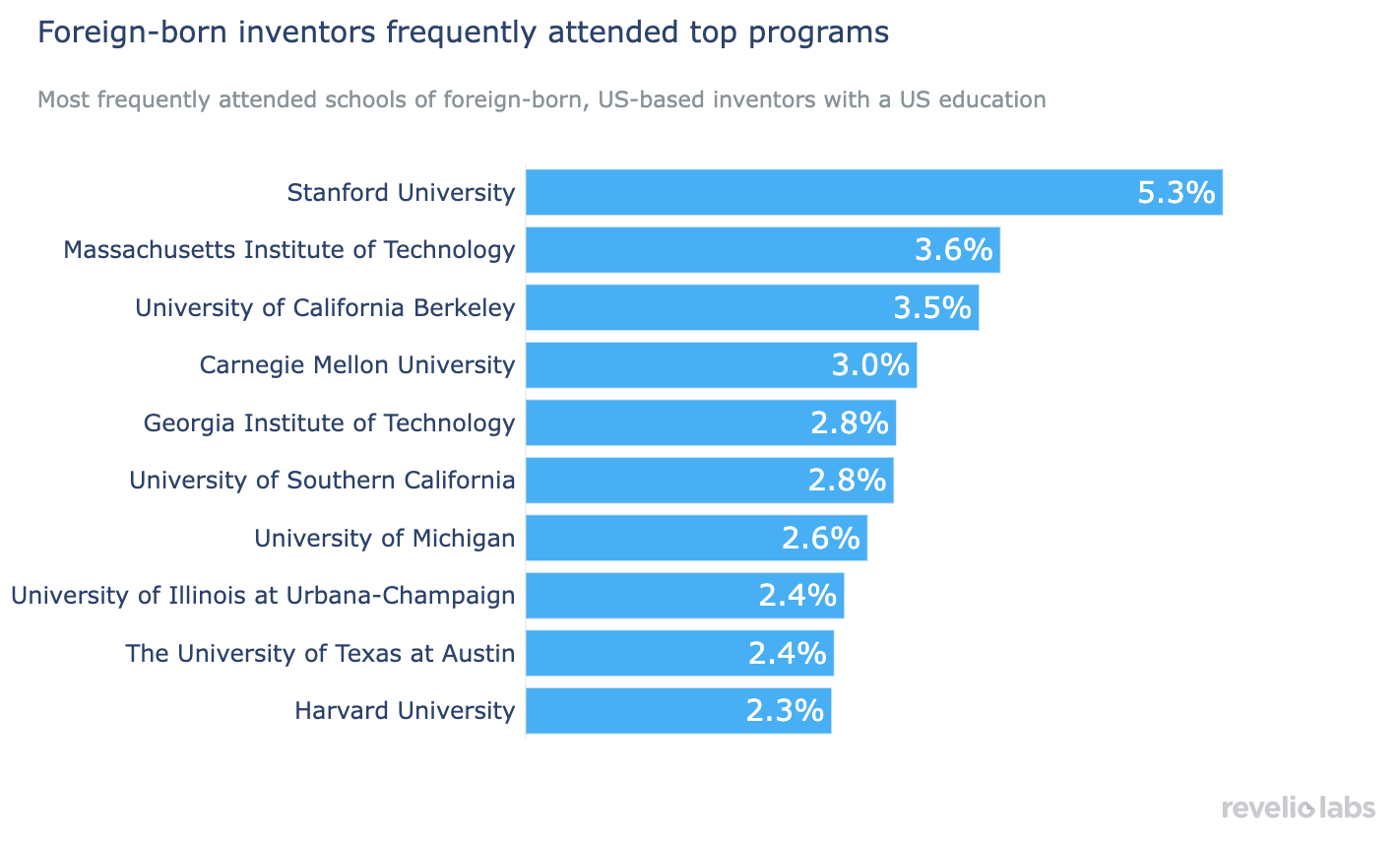
In conclusion, foreign-born inventors play an important part in driving US innovation. Policies that incentivize or disincentivize these inventors and other highly-skilled foreign individuals to work and live in the US could have substantial effects on US economic growth. With the majority of foreign-born, US-based inventors having received a degree from an American school, regulations impacting international students at US universities in particular may play a large role. American policymakers should thus carefully consider how potential legislation may shape the career paths and location choices of these individuals to maintain the competitiveness of the US in the global economy.


